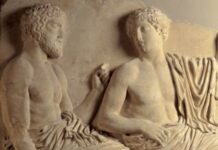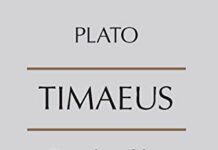
Ebook Info
- Published: 2012
- Number of pages: 118 pages
- Format: PDF
- File Size: 5.28 MB
- Authors: Plato
Description
This is an English translation of one of Plato’s great dialogues of Socrates talking about death, dying, and the soul due to his impending execution. Included is an introduction and glossary of key terms. Focus Philosophical Library translations are close to and are non-interpretative of the original text, with the notes and a glossary intending to provide the reader with some sense of the terms and the concepts as they were understood by Plato’s immediate audience.
User’s Reviews
Reviews from Amazon users which were colected at the time this book was published on the website:
⭐I have no desire to critique Plato or to give a synopsis of his Phaedo. What drew me to this review is actually the translators’ introduction. Brann, Kalkavage and Salem do, what I think, is an excellent job at breaking down the imagery and themes of the piece while adding a tremendous amount of background. If this were my first encounter with Plato or Greek thought in general, I would find the introduction to be infinitely valuable. For example, the translators point out that Socrates’ execution is being postponed due to a celebration. As it goes, each year the Athenians, in accordance to their vow to Apollo, send an emissary to Delos. Before they return, the city must keep itself pure and not put anyone to death. This is to commemorate Theseus’ recovery of fourteen young Athenians from the Minotaur of Crete. Now in the Phaedo, Socrates is Theseus, the fourteen present are the same from the Minotaur’s labyrinth and the Minotaur represents death itself. Personally, I found that little bit of information both charming and useful. The introduction is jam-packed full of such goodies that will help the reader gain a deeper understanding of this piece than if he or she were to just read it alone.
⭐The introductory essay of this edition is superb. It emphasises the monster in us that need to be slayed to free ourselves. That monster, ie the Minotour, is originated in the opening passages of Phaedo.Phaedo explains why there is a considerable gap of time between the sentencing and the carrying out of the execution. He refers to the myth of Theseus saving 14 people from the monster Minotour.Socrates is the Theseus, he is saving the 14 people who are with him at that time (see 59B for a list of the 14 companions of Socrates). The Minotour is the fear of death and the fear of argument (logos).The book itself is also divided into 14 sections:I. OpeningII. Separateness and the care of deathIII.Argument from contrariesIV.Argument from recollectionV. Songs for childrenVI. Argument from invisibilityVII. Lyre and the weaverVIII. Hatred of argumentIX.Tuning undoneX. Threat of blindness and the second sailingXI.Enthusiasm of EchecratesXII. Argument from causeXIII.The true earth mythXIV. The End.Beautiful, only Plato can write a book like this.
⭐Any translation or writing on Plato that has Kalkavage’s name is must read. Very few contemporary academics can write with the fluency and understanding of classic Plato as Hegelian Kalkavage can. Oh yeah, Brann is pretty good too…
⭐Cool
⭐Plato’s immortal Phaedo is here presented in a beautiful translation, with, surprisingly, a commentary that sheds new light on the meaning of this foundational dialogue. According to the authors of the commentary, it is a dialogue written to steel Socrates’ friends, and through them us (the readers),for the final inescapable act in life–our dying–and to show through Socrates–his courage in the face of present death, and his words of encouragement to both companions and friends as he slowly approaches death’s doorway–that a life lived well (which is what Socrates himself tried to do) is proof enough, or ought to be, against our fear of entering the unknown world that awaits each of us upon our death.The commentators–professors at St John’s College–offer an interpretation of some of Plato’s symbolisms in the dialogue that is both surprising and deeply revealing. (But I won’t spoil things by announcing what these symbols are and mean; you’ll have to read this wonderful book for yourself to discover that–and perhaps grow from it,too, as Plato/Socrates would have desired.) I have read this dialogue, in other translations, more than 20 times, at least, since college–yet surprise after surprise greeted me as I read through this truly insightful introduction. The authors ought to be given the ancient Greek Olympic prize (free food for life) for their brillance and insight. It is indeed an “Olympic triumph!” In brief, this is a dialogue–cum commentary–which any thoughtful, inquiring soul will desire to possess–and learn from…and remember, as he himself approaches life’s final and inescapable boundary.
Keywords
Free Download Phaedo (Focus Philosophical Library) 1st Edition in PDF format
Phaedo (Focus Philosophical Library) 1st Edition PDF Free Download
Download Phaedo (Focus Philosophical Library) 1st Edition 2012 PDF Free
Phaedo (Focus Philosophical Library) 1st Edition 2012 PDF Free Download
Download Phaedo (Focus Philosophical Library) 1st Edition PDF
Free Download Ebook Phaedo (Focus Philosophical Library) 1st Edition




